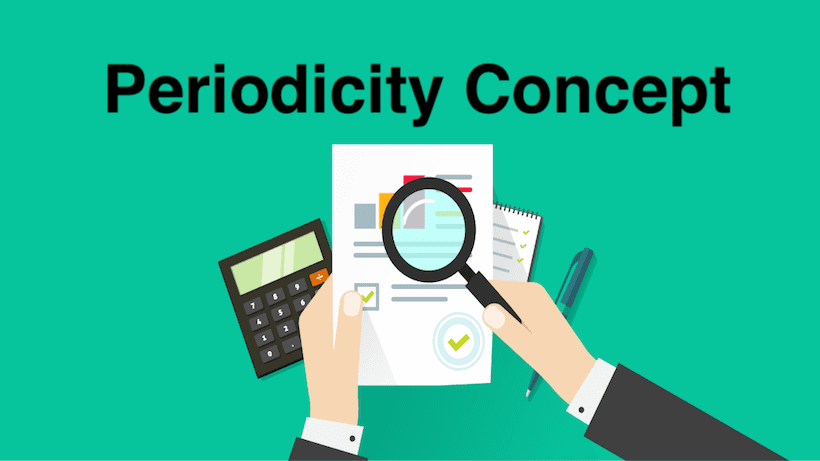Periodicity Concept -According to this concept accounts should be prepared after every period and not at the end of the life of the entity. Usually this period is one calendar year. In India we follow from 1st April of a year to 31st March of the immediately following year.
Periodicity Concept In Detailed
This is also called the concept of de nite accounting period. As per ‘going concern’ concept an inde nite life of the entity is assumed. For a business entity it causes inconvenience to measure performance achieved by the entity in the ordinary course of business.
If a textile mill lasts for 100 years, it is not desirable to measure its performance as well as Financial position only at the end of its life.
So a small but workable fraction of time is chosen out of in nite life cycle of the business entity for measuring performance and looking at the Financial position. Generally one year period is taken up for performance measurement and appraisal of Financial position. However, it may also be 6 months or 9 months or 15 months.
Advertisement
According to this concept accounts should be prepared after every period and not at the end of the life of the entity. Usually this period is one calendar year. In India we follow from 1st April of a year to 31st March of the immediately following year.
Thus, for performance appraisal it is not necessary to look into the revenue and expenses of an unduly long time-frame. This concept makes the accounting system workable and the term ‘accrual’ meaningful. If one thinks of inde nite time-frame, nothing will accrue. There cannot be unpaid expenses and non-receipt of revenue. Accrued expenses or accrued revenue is only with reference to a nite time-frame which is called accounting period.Thus, the periodicity concept facilitates in :
- (i) Comparing of Financial statements of different periods
- (ii) Uniform and consistent accounting treatment for ascertaining the pro t and assets of the business
- (iii) Matching periodic revenues with expenses for getting correct results of the business operations
In more Simple Words
This concept derives from the going-concern concept. As we have earlier seen, a business enterprise is assumed to continue operations for an indefinite future unless the contrary is known. But investors and other users of an entity’s accounting information cannot afford to wait forever for the information which they require for their diverse needs. To meet their needs, the “life-span” of the entity is broken into arbitrary specified time periods that are shorter than the life of the enterprise.
A 12-month period (one year) is the usual reporting period. Businesses also report summarized financial information on an interim basis: half-yearly, quarterly or even monthly. This is the concept called periodicity, time- period assumption or simply accounting period. The time period is usually identified in the financial statements.
Periodicity enables users of the reports to make comparisons of information between definite periods and amongst companies in the same industry (as a basis for decision-making). Such an advantage aside, periodicity concept has certain drawbacks. For example, the concept assumes that business transactions can be identified with particular periods even when we know that some transactions (e.g. buying a fixed asset), have consequences for many periods. Also, determination of income on a periodic basis, as implied by the concept, leads to comparisons of the results of successive periods. Such comparisons may be misleading as the pattern of business activity changes over time. Moreover, periodic accounts require arbitrary allocation and apportionment methods.
Recommended

